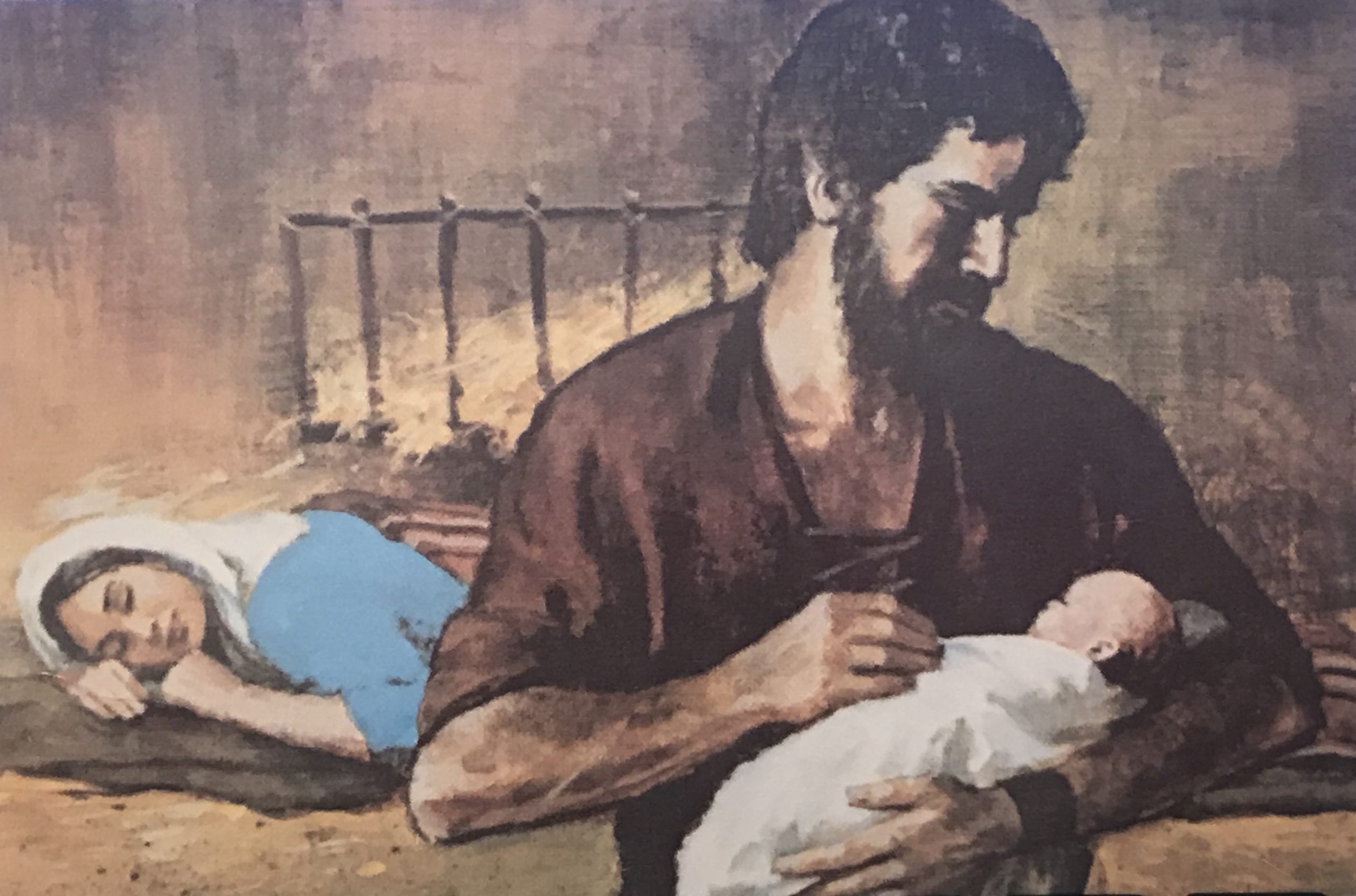The Book of Amos
Last Sunday’s first reading comes from Amos. Amos prophesies to the kingdoms of Judah and Israel around 750 B.C. The people of Israel are not happy with his message, and he responds by saying that he was a shepherd and God told him to go and prophesy, and so he did.
Time and again we see God choosing shepherds for special missions. Moses was shepherding his father-in-law’s flock when God called to him to lead his people out of slavery, David was called from his flock to be anointed king, Amos was called to lead the people away from their hypocrisy and abuse of the poor, the shepherds at the Nativity were the first to receive the news of the Savior’s birth and invited to adore Him, and Jesus many times refers to Himself as the Good Shepherd. Even in the modern era Our Lady of Fatima appears to three shepherd children in Fatima, Portugal in 1917 with a message of repentance to give to the world.
Why does God so often choose shepherds? Shepherds have learned patience. Sheep are not known as intelligent animals and can wander from the flock. In order to lead people by motivating them through love instead of fear requires a great deal of patience because we, like sheep, can wander off the path and make poor decisions.
Shepherds have learned to listen to God in the silence. They experience God through the natural world and through His creatures. They have established a rhythm to their days that does not involve the constant frenetic pace that the rest of us create in our lives. They create space in their lives to hear God’s voice.
Shepherds tend to be humble. They spend their days with animals who do not care what they wear, what they have achieved, or who they know. I am sure it is also easier to be humble with the constant reminder that they smell like sheep, but more than that, they know who they are as creatures of God and who God is as their Creator. Shepherds are trusted by their sheep because they treat their sheep kindly and it is this kindness that draws people to them as well.
Shepherds are down to earth and not impressed with their own intellect. In Jesus’s own words he says: “I give praise to you, Father, Lord of heaven and earth, for although you have hidden these things from the wise and the learned you have revealed them to the childlike. Yes, Father, such has been your gracious will.” (Mt 11:25-26) When these prophets speak God’s wisdom to the people, the people know that these words do not come from them but from God. Shepherds allow the Holy Spirit to speak because they realize that this wisdom is not theirs, but God’s.
Moses, David, and Jesus were forced into their desert experiences because the ruling kings sought their death, but God used these experiences to draw them closer to Himself. During the last year and a half with the lockdowns we have all lived the desert experience of the shepherds. Many have experienced the difficulty of “Zoom school,” job loss, decline in physical or mental health, or the death of a loved one who couldn’t receive needed medical procedures or by suicide. We all have suffered through isolation and loss of the sacraments for months. We have all been forced to slow down. It is in this desert that God has reached out to us.
We are the shepherds in the modern world. Yes, all of us ordinary people living ordinary lives are being called to our own unique missions. Each of us has talents – and weaknesses – designed for the particular mission God has chosen for us. He knows our imperfections, our shortcomings and our excuses –we are His sheep, after all. Our weaknesses are an opportunity for God to show His strength. Our lack of knowledge is an opportunity for His wisdom to shine through. Our uncertainty about the future is an opportunity to rely completely on Him.
The most important quality of shepherds is that when God calls them, they respond. Amos says simply, “I was no prophet, nor a prophet’s son, but I was a herdsman and a dresser of sycamore figs. But the Lord took me from following the flock, and the Lord said to me, ‘Go, prophesy to my people Israel.” (Amos 7:14-15). Simply saying yes is all that God required.
God is calling us now. He invites each of us into the silence to hear His voice. He invites us to trust Him. The promise He gave Moses (Ex 3:12) and the Apostles (Mt 28:20) — “I will be with you” — is the promise He gives to all of us. All He needs is our “yes” and He will do the rest.



